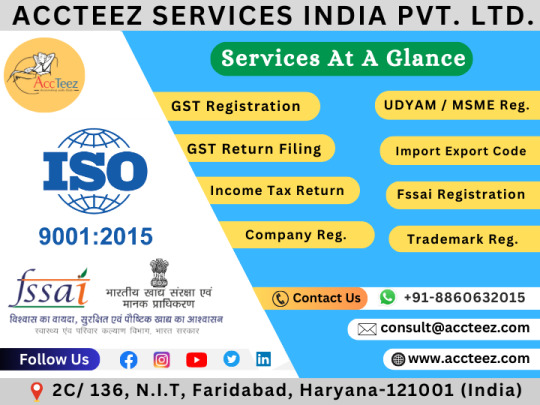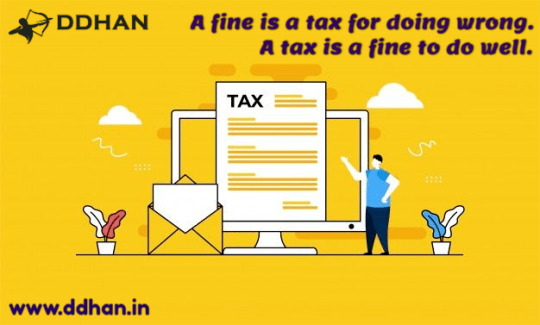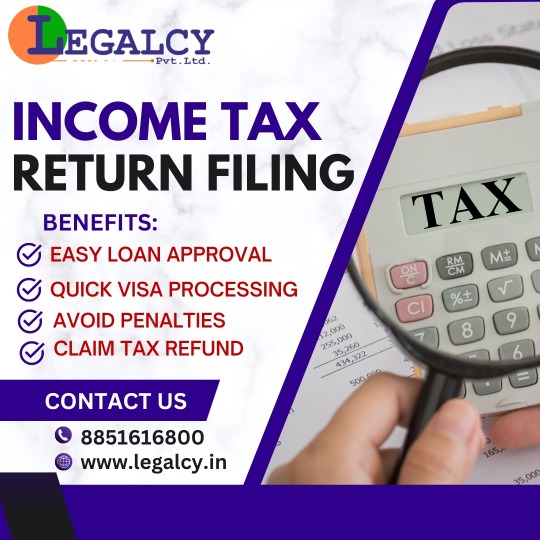#taxprofessional
Text
File Your GST Return On Time
(Avoid the last-minute rush)
👉🏻Contact us now 📞 +91-9811811991 / 9355533535
👉🏻Inquiry Form:- https://forms.gle/f1cyTwU9fetVMZkA8

#GSTReturnFiling#GST#GSTRegistration#shaaviprofessionalpvtltd#Gurgaon#taxprofessional#taxpayers#business#return#gstfiling#taxation#AvoidLateFees
3 notes
·
View notes
Text

Embrace the tranquility within and celebrate International Yoga Day! 🧘♀️✨ Join the global movement towards wellness and harmony. Let your body, mind, and soul find balance through the ancient art of yoga.
#InternationalYogaDay#WellnessJourney#FindYourInnerPeace"#offshore account no minimum#outsourceaccounting#outsource accounting services#offshoreaccounting#accounting service provider#offshorestaffingsolutions#offshore outsourcing services#taxseason#taxprofessional#crspconnect
2 notes
·
View notes
Text

Call: +91-8860632015 for All Types of CA, CS & Lawyer Services 😊😊
#business#success#money#smallbusiness#businessowner#startup#investment#love#goals#incometax#tax#taxes#taxseason#gst#accountant#taxpreparer#taxrefund#taxprofessional#trending#viral#explorepage#explore#india#indian#like#photography#trend#instadaily
2 notes
·
View notes
Text
The Most Important Information to Give the IRS to Settle Your IRS Tax Debts
If you Owe Back Taxes, if you are suffering from an Economic Hardship and if can’t pay your Monthly Living Expenses, you May be in Luck!☘️
When you owe back taxes to the IRS, May suddenly become very interested in your monthly income and expenses!
In fact you may want the IRS to know about your personal financial situation!
You may want to share your monthly expenses, such as your;
• Housing costs
• Car payment, gas, and insurance
• Gas, water, electric and other utility bills
• Medical insurance
• Cell phone
• Groceries and dining out
…and much more.
Why would you share this information with the IRS?
It all comes down to what the IRS calls Allowable Living Expenses.
The second you become a tax debtor, the IRS has a Secret tax lien against everything you own, including your future income. This is a feature of federal law, and it’s the basis for all the other collection actions that the IRS can take against you, such as a Wage Garnishment or Bank Levy.
Because of the lien, the IRS legally has a say in how you spend your money. Nobody likes this, but it’s the reality of how the US tax code works.
As with most laws, there is a long and complicated list of rules that go into determining what place the IRS holds in line behind or ahead of your other creditors, but the bottom line is that the IRS wants to get paid, and they have power to make your life a living nightmare by enforcing the tax laws over your money and assets.
It’s not all bad, however. There are specific legal protections that exist to prevent the IRS from taking everything you own. In simple terms, the IRS is not allowed to make you destitute. In other words, they are not allowed to put your family out on the street or force your children to starve if it creates an Financial Hardship on you and your family.
This is where those Allowable Living Expenses (ALE) come in. The IRS must allow you to pay all your basic living expenses, even if it means you cannot pay the IRS what you owe them. Sounds Great! Mostly, other than the tax lien they may file.
The IRS has legal standards that is required to follow and allow you and your family to pay before the IRS can collect anything. These are the usual categories:
• Food, clothing, personal care products, and “miscellaneous”
• Out of pocket health care costs
• Vehicle ownership and operating costs
• Rent or mortgage
• Utilities, including gas, water, electric, cell phone, Internet, and more
For vehicle operating costs, housing, and utilities, they do take into account regional variations for these costs. The rest are all based on national numbers. All the numbers also have adjustments based on family size.
These numbers “dictate” what the IRS will allow you to spend every month to live. Your income, when compared to these allowable standards, is what determines which IRS tax relief options you may be eligible for.
If your income is less than the total monthly allowable living expenses for Honolulu or where you live and family size, you might be eligible for a program that allows you to pay the IRS nothing. Yes, nothing. Zero. Nada. Zilch.
If your income is also less than the total monthly allowable living expenses, the IRS calculate for you, but you have assets – such as lots of equity in your home, stocks, bonds, classic cars, crypto, or the world’s most valuable Vinyl Record collection – then they’re going to take into consideration the value of those assets, too. But, in such a situation, you may be able to settle your tax debt for less than what you owe, and walk away from the rest.
If your income is more than the allowable living expense calculation, then the IRS is going to take that “excess” income into consideration for a reduced settlement. If you’re not eligible for a reduced settlement – which most people are not – then this “excess” income becomes the monthly minimal payment the IRS can require as a monthly payment.
One of the first things that Tax Relief Services can help our clients when they hire us to help them with a tax debt problem is to conduct a detailed Preliminary Analysis the exact same detailed financial analysis that the IRS should do but most of the time will not. We do the Preliminary Analysis for a number of reasons, such as:
1. Determining which IRS programs you’re eligible for.
2. Seek opportunities to legally increase your allowable living expenses.
3. Determine if the IRS balances are correct.
4. Look for unique circumstances that might open doors to outside-the-box resolution options.
This preliminary financial analysis is crucial for us to be able to get the best possible deal for our clients. Since the vast majority of tax debtors will end up on a monthly payment plan to the IRS, our job is to help get you the smallest possible monthly payment and help you minimize the short-term financial impact on your budget.
The IRS is NOT LOOKING OUR FOR YOU, BUT TAX RELIEF SERVICES IS!
If you’re in a situation where the IRS is hounding your, then we should chat. You don’t want to wind up in a situation where the IRS simply pigeon-holes you into the situation that is most convenient for them, leaving you unable to pay other monthly bills. Just schedule a time to chat:
WWW.TAXRELIEFSERVICES.COM
CALL TODAY!
TAX PROBLEMS DON’T GO AWAY!
808.589.232
#accounting#tax relief#taxreduction#tax#personal debt#tax expert#tax help#taxprofessional#tax reprieve#taxpayers#irs#financial#taxes#business#tax return#tax preparation
5 notes
·
View notes
Text

#ddhan#tax#taxes#taxconsultant#taxation#taxaccountant#taxcompliance#taxadvice#taxcredits#taxhelp#professionals#taxprofessional#taxprofessionals#gst#gstreturns#gstfiling#incometax#incometaxreturn#incometaxindia#taxfiling#gstcompliance#incometaxreturnfiling#tds#directtax#indirecttax#taxmanagement
3 notes
·
View notes
Text

Maximize Profits with Professional Business Consulting Services
Are you an experienced professional looking to leverage your skills and expertise for additional income?
Join our dynamic community of consultants on the Biz Consultancy app and start monetizing your knowledge today. Tailor your consultation schedule to fit your lifestyle, offering advice and sharing your expertise with those in need.
Earn financial rewards for your consulting services and expand your reach to clients worldwide, broadening your professional network.
Download the Biz Consultancy app from the App Store or Google Play Store and seize the opportunity to turn your expertise into income while making a positive impact on others' lives.
Join Biz Consultancy today!
#taxpreparation#taxseason#taxes#taxpreparer#tax#taxprofessional#taxrefund#taxreturn#taxplanning#taxprep#incometax#taxtips#accounting#bookkeeping#accountant#entrepreneur#smallbusiness#taxtime#business#payroll#finance#money#taxation#businesstaxes#businessowner#taxservices#taxpro#Business consultants#Business consulting services#Business advisor
0 notes
Text

Filing Your Income Tax Return Made Easy...
#Legalcy#Legalcyy#LegalcyPvtLtd#LegalcyPrivateLimited#incometax#taxreturn#taxseason#taxes#taxpreparation#taxhelp#taxtips#taxdeadline#taxrefund#taxfiling#taxprofessional#taxlaw#taxdeductions#taxplanning#taxservices#taxadvice#taxlawyer#taxaccountant#taxsavings#taxknowledge#incometaxreturn#incometaxupdates#tax#taxtime#facelessincometax#income
0 notes
Text
Tax Filing Season: What You Need to Know for Bigger Refunds and Better Security!
#IRSsecuritymeasures #taxdeductions #taxfilingseason #taxlaws #taxpreparationsoftware #taxprofessional #Taxrefunds #taxscams #taxwithholdingtables
#Business#IRSsecuritymeasures#taxdeductions#taxfilingseason#taxlaws#taxpreparationsoftware#taxprofessional#Taxrefunds#taxscams#taxwithholdingtables
0 notes
Text
A belated ITR
A belated ITR is filed by individuals who have missed the original filing deadline,
which is usually July 31.
Apart from the belated return, December 31, 2023,
is also the last date to file the revised ITR for FY 2022-23 (AY 2023-24).
CONTACT US : 9844000399
incometax #tax #taxes #taxseason #business
#gst #accounting #finance #accountant #taxpreparer
taxrefund #taxprofessional #smallbusiness #taxreturn

#incometax#tax#taxes#taxseason#business#gst#accounting#finance#accountant#taxpreparer#taxrefund#taxprofessional#smallbusiness#taxreturn
0 notes
Text
A belated ITR
A belated ITR is filed by individuals who have missed the original filing deadline, which is usually July 31. Apart from the belated return, December 31, 2023, is also the last date to file the revised ITR for FY 2022-23 (AY 2023-24).
CONTACT US : 9844000399

#incometax#tax#taxes#taxseason#business#gst#accounting#finance#accountant#taxpreparer#taxrefund#taxprofessional#smallbusiness#taxreturn
0 notes
Text

Boost your business in Hobart with expert tax advice! Tailored guidance, ongoing support, and comprehensive solutions.
#businesssuccess#businessgrowth#taxconsultant#tax#accountants#businessstrategy#taxation#taxprofessional#smallbusiness#hobart
0 notes
Text

File Income Return
"File Income Return" is a crucial financial process that individuals and businesses undertake annually to comply with tax regulations and report their income and financial activities to the relevant tax authorities. This process involves the submission of detailed financial information, including earnings, expenses, deductions, and credits, in a standardized format known as a tax return. Here, we will delve into a 300-word description of the significance and key aspects of filing income returns.
Filing income returns is a fundamental civic responsibility in most countries, where tax revenue plays a critical role in funding government initiatives, infrastructure development, and public services. The process typically requires taxpayers to complete tax forms, such as the Internal Revenue Service (IRS) 1040 in the United States, detailing their financial transactions for a specific tax year.
One of the primary objectives of filing income returns is to determine the tax liability owed to the government. Taxpayers must calculate their taxable income by subtracting eligible deductions and tax credits from their gross income. Accurate reporting ensures that individuals and businesses pay the appropriate amount of taxes, thereby avoiding penalties, interest, and potential legal consequences for non-compliance.
Moreover, filing income returns is a means of claiming tax refunds for those who have overpaid their taxes throughout the year. Many taxpayers are entitled to refunds due to various factors, such as over-withholding by employers or eligible tax credits. Filing a return is the only way to access these funds, which can provide financial relief or be reinvested into savings or investments.
For businesses, income returns also serve as a comprehensive financial record-keeping process. It helps them track their financial performance, evaluate profitability, and make informed decisions regarding tax planning and compliance. Accurate financial reporting is essential for building trust with stakeholders, securing loans or investments, and ensuring business sustainability.
Filing income returns can be a complex task, particularly for those with diverse income sources or intricate financial situations. As a result, many individuals and businesses seek the assistance of tax professionals or use tax preparation software to ensure accuracy and compliance with tax laws.
In conclusion, filing income returns is a vital financial process that enables individuals and businesses to fulfill their tax obligations, determine their tax liability, claim refunds, and maintain accurate financial records. It is not only a legal requirement but also a key aspect of responsible financial management that supports government functions and the overall well-being of society.
#incometax#tax#taxes#taxseason#business#gst#accounting#finance#accountant#taxpreparer#taxrefund#taxprofessional#smallbusiness#taxreturn#incometaxreturn#entrepreneur#money#bookkeeping#incometaxindia#taxtips#taxpreparation#irs#taxplanning#taxation#incometaxseason#taxconsultant#ca#payroll#india#businessowner
0 notes
Text

Join us at this premier accounting event where industry leaders gather to share knowledge and ignite innovation. Visit our booth to meet our CEO - CA Paritosh Sanadhya, CPA Braj Aggarwal, and CMO Ronak Agrawal, as they engage in insightful discussions on the latest trends in the accounting sector. Don't miss this opportunity to network, learn, and explore new possibilities. See you at #NJCPAExpo23!
#offshore account no minimum#offshore outsourcing services#offshoreaccounting#outsourceaccounting#taxprofessional#offshorestaffingsolutions#accounting service provider#taxseason#crspconnect#outsource accounting services
2 notes
·
View notes
Text

File your Income Tax Return for AY 2023-24 with Accteez and enjoy The Kerala story 😊😊
#business#entrepreneur#motivation#marketing#success#money#smallbusiness#incometax#tax#taxes#taxseason#gst#accounting#accountant#taxpreparer#taxrefund#taxprofessional#taxreturn#incometaxreturn#bookkeeping#incometaxindia#taxtips#viral#explorepage#explore#india#indian#like#likeforlikes#followforfollowback
4 notes
·
View notes
Text
We Provide The Best Registration Services in Delhi | Shaavi Professional
What are you waiting for give us a Call or WhatsApp: +91-9811811991 / 9355533535
Google Form:- https://forms.gle/iqY8o8pYjUG2YAVf9
Want to know the secret:- Click the link to be in my Shaavi Professional Tax Co group: https://chat.whatsapp.com/J2UqigxhBwy2Q02RG0alkw

#accounting#shaavi#taxation#accounting services#company registration#taxprofessional#taxlaw#in delhi#msme registration#gst services
1 note
·
View note
Text
"The Freelancer's Tax Toolkit: Saving Money at Tax Time"

Tax-Saving Strategies Every Freelancer and Small Business Must Use

Tax-Saving Strategies Every Freelancer and Small Business Must Use
1. Keep Immaculate Records
2. Max Out Tax-Advantaged Retirement Accounts
3. Deduct All Eligible Business Expenses
4. Claim the Home Office Deduction
5. Track Mileage for Business Travel
6. Hire Family Members
7. Leverage Tax Credits
8. Make Quarterly Estimated Tax Payments
9. Don't Be Afraid to Hire Tax Help
10. Plan for Long-Term Tax Strategies
11. Make Charitable Contributions
12. Open and Fund an HSA
13. Use Tax Loss Harvesting
14. Look Into the R&D Tax Credit
15. Review Your Business Structure
As a freelancer or small business owner, taxes can take a big bite out of your bottom line. While you can't eliminate taxes completely, implementing smart tax planning strategies can help you keep more of your hard-earned income.
In this comprehensive guide, we'll explore 15 powerful tax-saving tips that every freelancer and small business should consider taking advantage of. Master these strategies, and you'll be well on your way to maximizing your after-tax income.
1. Keep Immaculate Records
Meticulous record keeping is the foundation of tax savings for the self-employed. By maintaining thorough and organized records, you’ll be able to accurately calculate all your eligible business deductions and back up your figures if ever audited by the IRS.
Be sure to set up a system to track all business income and expenses. Save receipts and invoices, separate business and personal bank accounts, create expense reports, and have a dedicated record-keeping software like QuickBooks or FreshBooks. The more details you can provide, the more deductions you can claim.
Accurate records also help with estimating quarterly taxes, managing cash flow, monitoring the health of your business, and doing comprehensive tax planning. The time invested in record keeping up front can yield significant tax and financial benefits down the road.
2. Max Out Tax-Advantaged Retirement Accounts
Tax-advantaged retirement plans like Solo 401(k)s and SEP IRAs allow freelancers and small business owners to save for the future while lowering taxable income today.
The Solo 401(k) is likely the best option for solo entrepreneurs or businesses with no employees besides the owner and a spouse. Solo 401(k)s allow you to contribute both as an employee and an employer, with total contributions up to $61,000 per year for 2022 ($67,500 for those 50 or older). Meanwhile, SEP IRAs permit contributions up to 25% of your net business income, up to $61,000 annually.
Maxing out these accounts can slash your taxable income significantly. Be sure to explore them fully and use them as part of an integrated tax minimization strategy.
3. Deduct All Eligible Business Expenses
One of the best parts of being a small business owner is deducting legitimate business expenses to reduce your taxable income. Make sure you're taking advantage of every allowable deduction based on your business model and activities.
Common deductible expenses include:
- Office supplies and equipment
- Professional services like bookkeeping or legal fees
- Employee salaries and benefits
- Advertising and marketing costs
- Travel and transportation related to business activities
- Phone, internet, and utility expenses
- Insurance premiums
- Interest paid on business loans and credit cards
- Rent or lease payments for office space
- Ongoing education and training
Deducting all applicable expenses properly can result in thousands of dollars in tax savings. Consult with a tax pro to identify all potential write-offs.
4. Claim the Home Office Deduction
Many freelancers and small business owners work from home, whether full time or as a hybrid model. If you operate your business out of your home, be sure to take the home office deduction.
To qualify, you must use a specific area of your home regularly and exclusively for business. You can then deduct a portion of home-related expenses like rent, mortgage interest, property taxes, utilities, insurance, maintenance, and repairs based on the square footage percentage used for business.
Home office deductions can be worth thousands per year, making it well worth setting up a dedicated workspace that meets IRS requirements. Just be sure to use the space only for business to avoid questions.
5. Track Mileage for Business Travel
Business-related travel is another significant tax write-off for the self-employed. For 2022, you can deduct either your actual vehicle expenses or take the standard IRS mileage rate of 58.5 cents per mile.
To maximize your deduction, keep meticulous records of mileage driven for business purposes in a vehicle log or app like MileIQ. Calculate the total miles and multiply it by the standard mileage rate. This adds up fast, especially for service businesses like caterers, contractors, realtors, etc.
You can also deduct parking, tolls, rideshare services, and other transportation costs related to business activities. Capture these expenses as you go to build your deduction.
6. Hire Family Members
Bringing family members into your business can provide personal and tax benefits. As long as the family member is doing legitimate work for your business, you can deduct their salary as a business expense just like any other employee.
Some common examples include hiring a spouse for administrative tasks, children for social media help, or siblings for services like graphic design or bookkeeping. Just be sure to keep proper payroll records like any other employee.
The family member must also claim the income on their taxes. But as long as they're doing real work for the business, it's a win-win tax strategy.
7. Leverage Tax Credits
Beyond deductions, small businesses can further reduce taxes through tax credits directly lowering your tax bill on a dollar-for-dollar basis.
Some examples of small business tax credits include:
- Small Business Healthcare Tax Credit - offers a credit of up to 50% of premium costs for small businesses providing employee health insurance.
- Work Opportunity Tax Credit - provides a credit up to $9,600 per employee hired from certain targeted groups like veterans or those receiving government assistance.
- Research and Development Tax Credit - available for businesses investing in experimental research and product development.
Take time to research what credits make sense for your business situation and ensure you properly claim them. The tax savings can be substantial.
8. Make Quarterly Estimated Tax Payments
As a business owner, you typically don't have taxes withheld from a paycheck like a W-2 employee. As such, you must make quarterly estimated tax payments on your income to avoid penalties and interest charges.
Estimated tax payments are due every quarter: April 15, June 15, September 15, and January 15. The IRS requires you to pay either 90% of your total tax bill or 100% of the prior year's tax amount through quarterly payments.
Making timely estimated payments not only helps you avoid penalties but also manages your cash flow effectively throughout the year. Don't let estimated taxes catch you off guard.
9. Don't Be Afraid to Hire Tax Help
With all the complexities and responsibilities of running a small business, it can be tempting to take a DIY approach to taxes to save money. However, hiring a knowledgeable tax pro can provide huge value and more than pay for itself.
A tax professional can help you:
- Navigate complex tax laws and ever-changing regulations
- Identify overlooked deductions you may be missing
- Structure your business in a more tax-efficient manner
- Plan tax strategies to maximize savings both now and in the future
- Avoid mistakes that could lead to audits and penalties
A good CPA will save you more in tax savings than their fees, giving you confidence at tax time. Their expertise offers peace of mind and allows you to focus on your business.
10. Plan for Long-Term Tax Strategies
Taxes owed each year are important, but also consider long-term tax planning strategies that could benefit your business for years to come.
Some examples include:
- Incorporating as an S corporation - This changes how business income is taxed and may provide savings for some businesses.
- Employee vs independent contractor status - Weigh the tax implications of bringing on employees vs contractors.
- Accounting methods - Cash vs accrual accounting affects when income and expenses are recognized for tax purposes.
- Buying business property - Carefully consider whether to expense or depreciate capital expenditures over time.
- Estate and succession planning - Develop a tax-smart plan for transferring your business as part of your estate.
Meeting with a tax advisor annually can help identify the best long-term tax strategies to put in place well before tax time.
11. Make Charitable Contributions
Supporting charitable causes you're passionate about while also lowering your tax bill for the year is a win-win. Some ways to integrate charitable giving into your business tax planning include:
- Donating money directly from your business instead of personally
- Donating inventory, services, or other non-cash assets
- Setting up a donor-advised fund under your business name
- Establishing a nonprofit foundation funded by your business
- Sponsoring fundraising events, teams, or causes as a business
Be sure to track charitable donations closely. While tax deductible, charitable giving should also align with your business values and priorities.
12. Open and Fund an HSA
For small business owners who have a high deductible health plan, contributing to a Health Savings Account (HSA) can provide triple tax benefits.
HSAs offer:
- An above-the-line deduction lowering your AGI when you contribute.
- Tax-deferred growth on the funds just like a 401(k).
- Tax-free withdrawals for qualified medical expenses.
For 2022, you can contribute up to $3,650 for self-only HDHP coverage or $7,300 for family coverage. If over age 55, you can also make an extra $1,000 catch-up contribution.
Maximizing an HSA along with a high deductible health plan can be a wise long-term tax and healthcare savings strategy.
13. Use Tax Loss Harvesting
Tax loss harvesting involves strategically selling investments at a loss to offset capital gains and income taxes. This technique allows you to book losses to lower your tax bill while maintaining your overall investment portfolio and asset allocation.
As a business owner, you may have substantial capital gains from selling assets or investments held inside your business. By harvesting losses in your investment accounts, you can generate deductions to offset these gains and reduce what you owe.
Work with your financial advisor or CPA to model tax loss harvesting scenarios and improve your after-tax return.
14. Look Into the R&D Tax Credit
Many businesses are unaware that engaging in experimental research and development activities could qualify them for valuable R&D tax credits.
According to the IRS, "research" refers to eliminating uncertainty about the development or improvement of a product. "Development" means translating research findings into a new product or process.
Some examples that may qualify include:
- Developing new technologies, formulas, inventions, or processes
- Testing and refining prototypes or models
- Clinical studies to obtain FDA approval for a new drug
- Software development to improve internal systems/tools
- Engineering to improve performance, reliability, or quality
Professional services like engineers, designers, software developers, and research scientists can help quantify credits.
15. Review Your Business Structure
The legal structure you choose for your business also impacts your tax situation both now and in the future. Periodically stepping back to assess if your current business structure makes sense can reveal opportunities for tax savings.
Some considerations around business structure include:
- Sole proprietorship - Simplest structure with no distinction between you and your business for tax purposes. Income is reported on your personal return.
- Partnership - Partners report their share of profits/losses on personal tax returns and avoid double taxation. General partners have unlimited liability.
- S Corporation - Profits/losses are allocated to shareholders based on ownership percentages and taxed at individual rates. Reasonable salary is subject to FICA taxes.
- C Corporation - Subject to corporate income tax rates. Double taxation for dividends distributed to shareholders. Better for raising capital long-term.
Your tax and legal advisors can help analyze the best structure for your goals, cash flow, and owner preferences.
Putting even a handful of these tax strategies to work can help freelancers and small business owners hold onto more of their hard-earned income to fuel future growth and prosperity. Don't leave potential savings on the table. Partner with your financial and tax advisors to implement a plan tailored to your business. The tax and cash flow benefits will be well worth the effort.

Read the full article
#businessexpenses#charitablecontributions#estimatedtaxpayments#familyhiring#freelancers#homeofficededuction#HSA#long-termtaxstrategies#mileagededuction#R&Dtaxcredit#record-keeping#retirementaccounts#SmallBusiness#taxcredits#taxlossharvesting#taxplanning#taxprofessional#taxsavings
0 notes